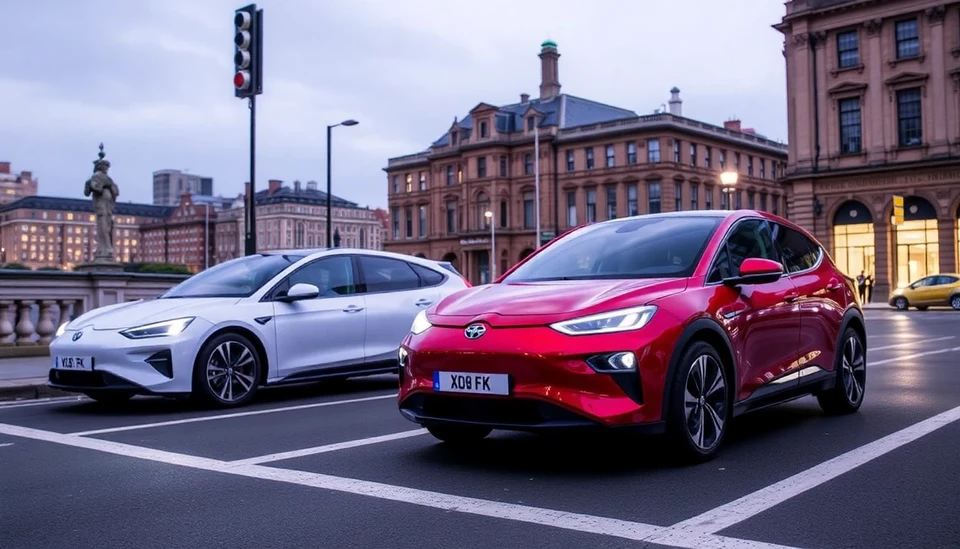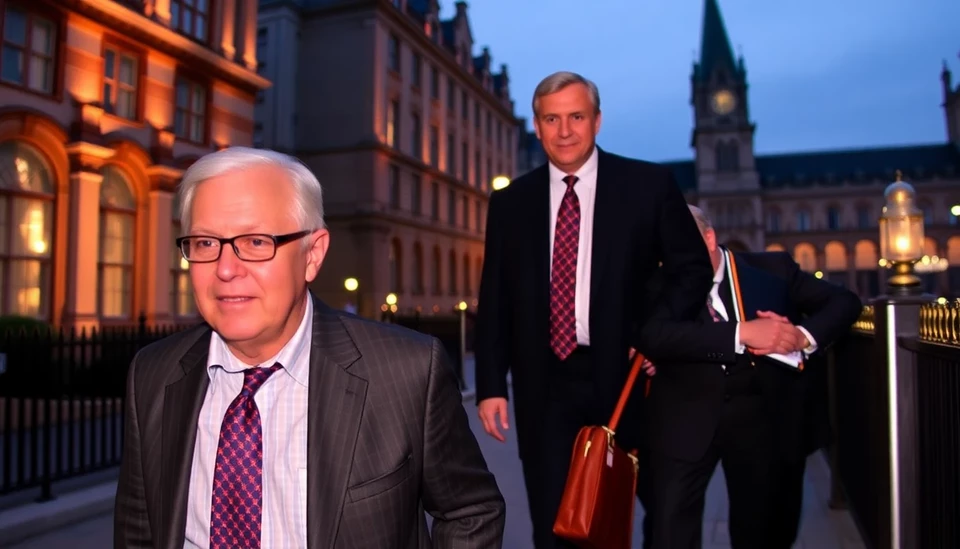
In light of the ever-evolving automotive landscape, UK regulations concerning electric vehicles (EVs) are facing significant changes, particularly as car manufacturers grapple with new tariff challenges. As the UK gears up for a pivotal shift in its automotive policy, industry stakeholders are closely monitoring the government's latest developments regarding its emissions targets and the potential impact on both local and international automakers.
The UK’s mandate for electric vehicle sales, originally set to phase in by 2030, is now being recalibrated. Automakers are under intense scrutiny to adapt to the rapid transition towards electric mobility. The burden of tariffs on imported vehicles is proving to be a significant factor in shaping the decisions of car manufacturers as they contemplate how best to respond to this mandate.
With the UK aiming to solidify its position as a leader in the electric vehicle market, the government has outlined a framework that sets ambitious sales targets for EVs. The current regulation stipulates that by 2025, at least 20% of new car sales in the UK must be battery electric vehicles. This regulation aligns with the UK’s broader goals to achieve net-zero emissions by 2050, but the path forward is fraught with complexities.
Manufacturers are grappling with the challenges posed by tariffs, especially as the UK has established new trade agreements post-Brexit. Tariffs on imported raw materials and components can significantly drive up production costs, forcing companies to rethink their sourcing and manufacturing strategies. The potential for tariffs on EVs produced outside of the UK adds another layer of complexity as automakers strive to remain competitive.
In the face of these evolving rules, many carmakers are ramping up investments in local production facilities to mitigate the negative effects of tariffs. This shift not only allows them to avoid additional costs associated with importing vehicles but also helps in showcasing their commitment to sustainability and local economies. Companies like Ford and BMW are reportedly considering significant expansions of their manufacturing capabilities in the UK, which could include more electric vehicle plants.
Furthermore, the landscape is further complicated by the varied consumer acceptance of EVs. Despite increasing environmental consciousness, the transition is hindered by concerns over charging infrastructure, vehicle costs, and range anxiety. To counter these issues, automakers are investing in educating consumers, promoting the benefits of EV ownership, and collaborating with local governments to enhance charging networks.
As the clock ticks closer to the 2025 deadline, stakeholders from across the spectrum are calling for clearer guidance and support from the government to ensure the transition is smooth. The call for a coherent policy that balances environmental goals with economic realities is more pressing than ever. Automakers are not only vying for compliance but also for a position in a competitive market that is quickly shifting towards electrification.
In conclusion, the future of the UK's automotive industry hangs in the balance as carmakers adapt to new EV mandates amidst tariff challenges. With strategic investments and an emphasis on local production, manufacturers are positioning themselves to thrive in an increasingly electrified automotive landscape. The momentum towards electric mobility is undeniable, but the path forward requires careful navigation and collaboration among industry, government, and consumers alike.
#UK #ElectricVehicles #EVMandate #Carmakers #Tariffs #AutomotiveIndustry #Sustainability #NetZero
Author: Samuel Brooks




